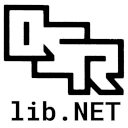This ASP.NET web API shows a sample implementation of a REST-style web API whose endpoints surface OSRlib.NET functionality to remote client applications.
Like the OSRlib.NET package itself, this sample application is in the early stages of development.
- .NET SDK 7.0+
To build and start the web API:
-
Clone this repository by using
git clone. -
Move into the project's
srcdirectory use the .NET CLI to start the API. If you're asked whether to restore project dependencies, say Yes.cd osrlib-demo-api/src dotnet runYou should see output similar to the following:
Building... info: Microsoft.Hosting.Lifetime[14] Now listening on: http://localhost:5207 info: Microsoft.Hosting.Lifetime[0] Application started. Press Ctrl+C to shut down. info: Microsoft.Hosting.Lifetime[0] Hosting environment: Development info: Microsoft.Hosting.Lifetime[0] Content root path: /Users/$USER/repos/osrlib-demo-api/src -
To verify that the API is up and running, navigate to
http://localhost:5207/swaggerin your browser (if it differs, modify the port number to match yourdotnet runoutput).If the API is up and running, the Swagger/OpenAPI UI should be displayed in your browser window. It should look something like this:
This ASP.NET Core Web API project references the osrlib.Core NuGet package. Its API endpoints provide REST-style interaction with the OSRlib.NET's core game rules engine in osrlib.Core.
🚧 TODO: Add a full description of the web API's endpoints and their use of the OSRlib.NET package once a demo client application that leverages this API is built and available on GitHub.
With the API up and running, you can use the Swagger UI's Try it out feature to test its endpoints.
Then, if you're not already familiar with it, learn about the OSRlib.NET object model and API.
Once you have a good grasp of how OSRlib.NET works, build a game client app that uses this (or your own) OSRlib-backed web API as its backend service.
🚧 TODO: Direct developers to the demo client application(s) once built and made available on GitHub.

